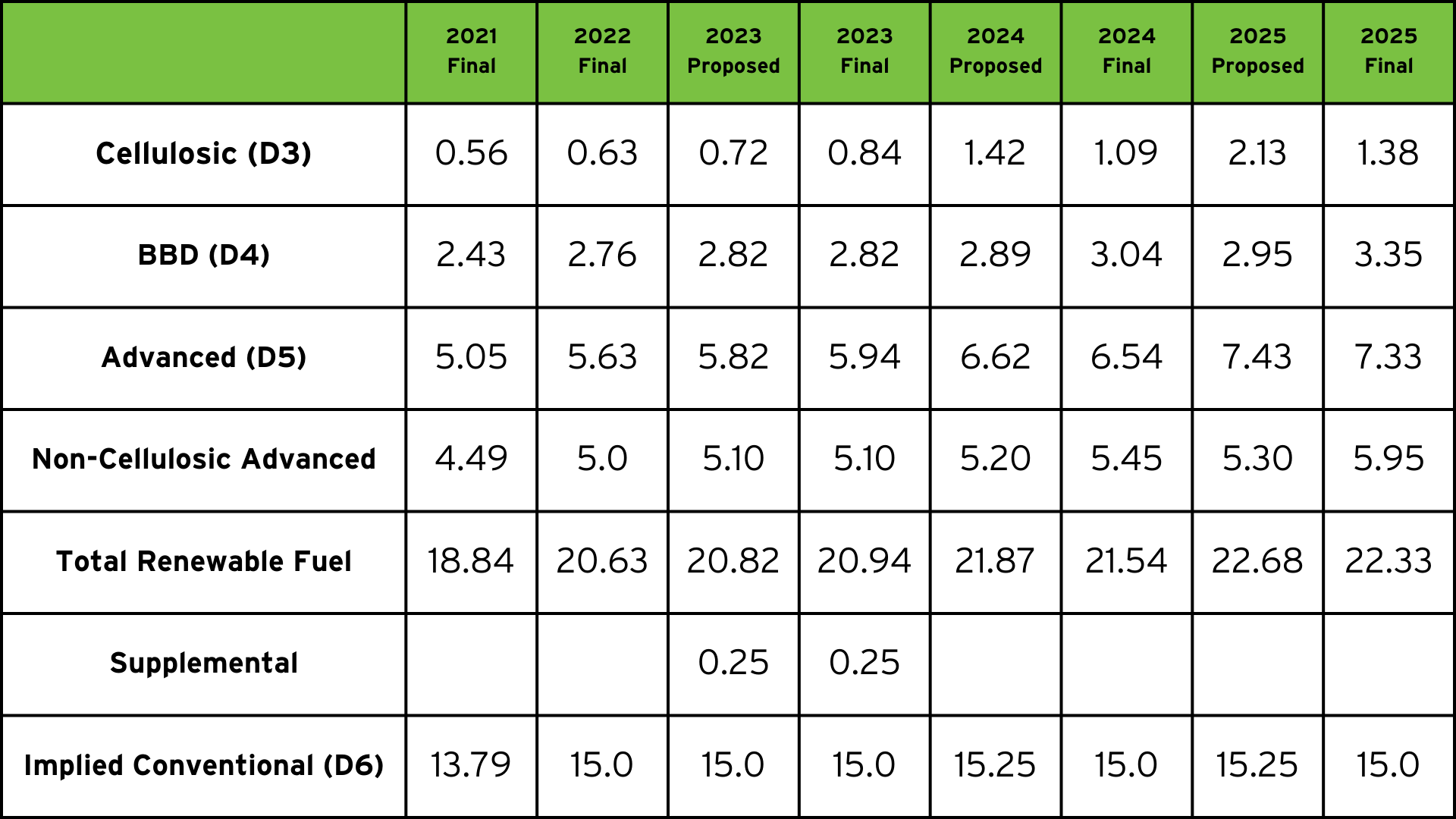
WASHINGTON, D.C.— Growth Energy CEO Emily Skor issued the following statement after the U.S. Environmental Protection Agency (EPA) released its final renewable volume obligations (RVOs) for 2023-2025 under the Renewable Fuel Standard (RFS), also known as the Set.
“The RFS remains one of America’s most successful clean energy policies, but, yet again, its full potential as a climate solution remains untapped. EPA’s decision to lower its ambitions for conventional biofuels runs counter to the direction set by Congress and will needlessly slow progress toward this administration’s climate goals.
“We should be expanding market opportunities for higher blends like E15, not leaving carbon reductions on the table.
“While the final rule offers a modest improvement in advanced volumes, EPA inexplicably failed to extend that recognition to conventional biofuels. The bioethanol industry has more than adequate supply to meet the higher volumes that were originally proposed in December 2022. Choosing not to put that supply to good use in decarbonizing the transportation sector runs counter to this administration’s previously-stated commitments and undermines the goal of reaching net-zero by 2050.”
Background
Under the terms of a consent decree with Growth Energy, EPA was required to finalize the RVOs for 2023-2025 by June 14, 2023. At EPA’s request, Growth Energy consented to a one-week delay in the deadline and the final volumes were released publicly this morning.
In EPA’s final rule:
-Total RVO gallons increase by 1.37 billion gallons (BG) from 2023 to 2025.
-Total advanced D5 RIN gallons increase by 1.37BG from 2023 to 2025.
-Bio-based diesel D4 RIN gallons remain unchanged from the proposal in 2023.
-Cellulosic gallons reflect the removal of approximately 1.8BG of eRINs, which have been removed from the final rule, and the increase of non-eRIN cellulosic volumes, primarily for biogas.
-Total non-cellulosic advanced gallons increase by 850 million gallons (MG) between 2023 and 2025.
-Implied conventional gallons remain flat at 15BG each year of the proposal (with 250MG in 2023 for ACEI remand). Note that in EPA’s original proposal, conventional gallons would have increased to 15.25 BG in 2024 and 2025.
Final Volumes (in billions of gallons)
